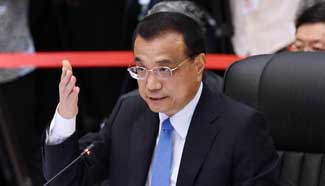BEIJING, Sept. 8 (Xinhua) -- The exchange rate of the renminbi (RMB), or Chinese yuan, will remain largely stable in the second half of 2016, despite the widening foreign exchange (FX) reserve decline, a report said Thursday.
"The RMB's inclusion in the IMF's Special Drawing Rights (SDR) currency basket will come into effect in October. China is unlikely to allow drastic changes in its exchange rate to facilitate the transition, not to mention the G20's commitment to avoiding competitive devaluations," said the report by China International Capital Corporation (CICC), a joint venture investment bank.
Further, the CICC researchers believe the expectation that China may devalue the RMB after SDR inclusion is a misperception, given the country needs to establish its credibility for consistent and transparent policymaking as a new SDR currency issuer and the IMF's third-largest shareholder.
Exchange rate instability would also discourage investment and consumption for China, according to the CICC.
"Against this backdrop, the RMB's downside will prove limited in the second half (H2) of 2016, both economically and politically," said the report.
The CICC researchers also expect relatively small FX reserve declines in the near term, and FX outflows are expected to be manageable, though still continuing.
Forex reserves fell to 3.185 trillion U.S. dollars at the end of August, down from 3.201 trillion in July, official data showed Wednesday.










